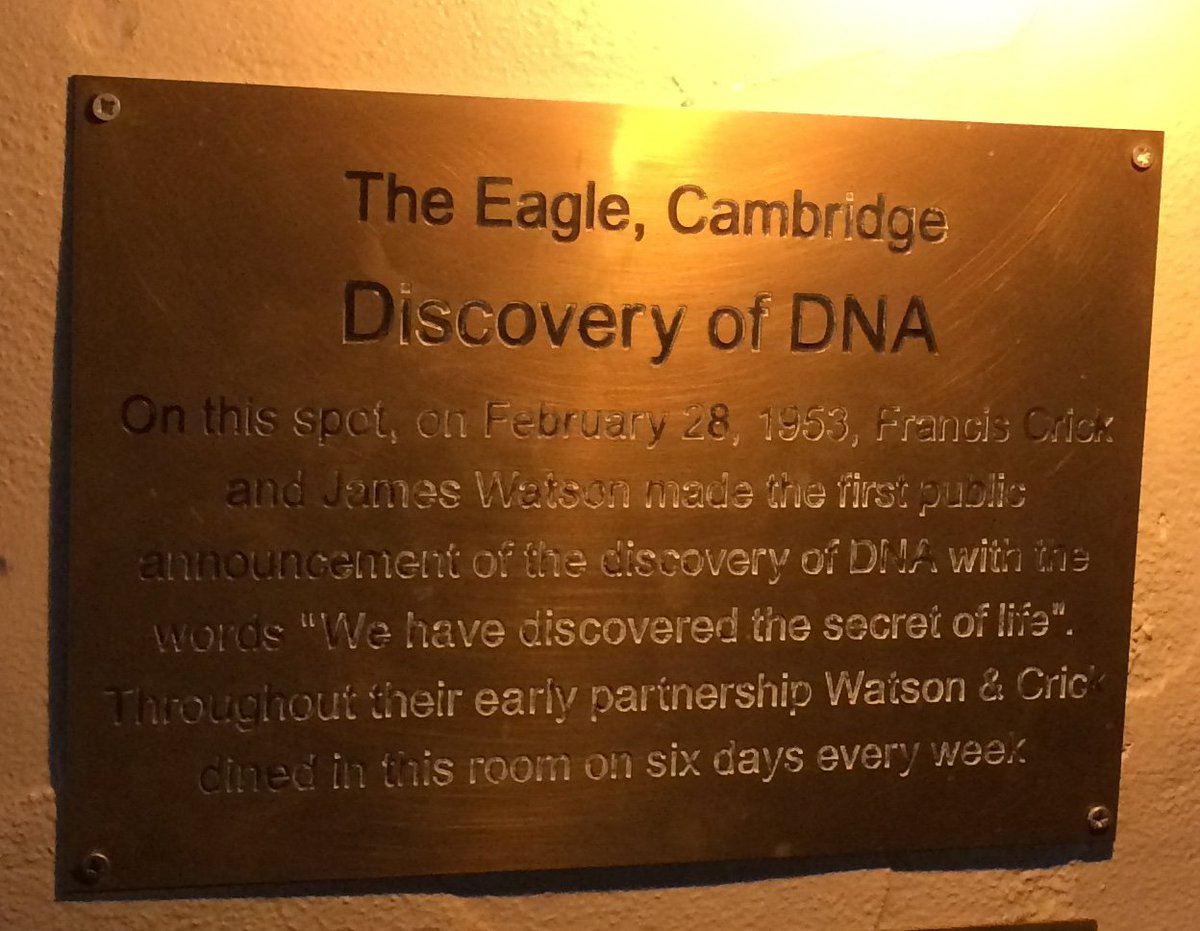Had 19th century Swiss physiologist Friedrich Miescher been able to walk into ‘The Eagle’ pub in the centre of Cambridge today, he would have been utterly horrified. For not only does the pub serve a pint of specially brewed beer called ‘DNA’ (or at least it did when I went in there to unwind after a hard day in the archives a couple of years ago) but in one corner, is a plaque commemorating ‘the first public announcement of the discovery of DNA’ by James Watson and Francis Crick in 1953.
The tourists who cluster around this plaque eagerly snapping photos on their phones would probably be disappointed however to learn that the plaque commemorates something that never actually happened. And although the beer may taste pleasant, its name is something of a misnomer.
This is because although Watson and Crick discovered its now famous double-helical structure, the honour for the discovery of DNA itself goes to Friedrich Miescher.
Almost a century before Watson and Crick, Miescher made his discovery whilst analysing the composition of white blood cells washed from pus scraped off discarded surgical bandages that he collected from a local hospital.
Along with Watson & Crick’s Nature paper of April 1953, Gregor Mendel’s work on pea hybrids and Charles Darwin’s ‘On the Origin of Species’, Miescher’s work, finally published in 1871, is a landmark in biology – albeit a quiet one. But until now it has never been translated from the German in which it was originally written into English. Now, thanks to Cambridge University Press, Dr. Neeraja Sankaran and I are delighted to present what we believe to be the first complete translation of this milestone in the British Journal for the History of Science at https://www.cambridge.org/core/journals/british-journal-for-the-history-of-science/article/dna-translated-friedrich-mieschers-discovery-of-nuclein-in-its-original-context/60A9706BE7610FFD42F805AE636670FA
